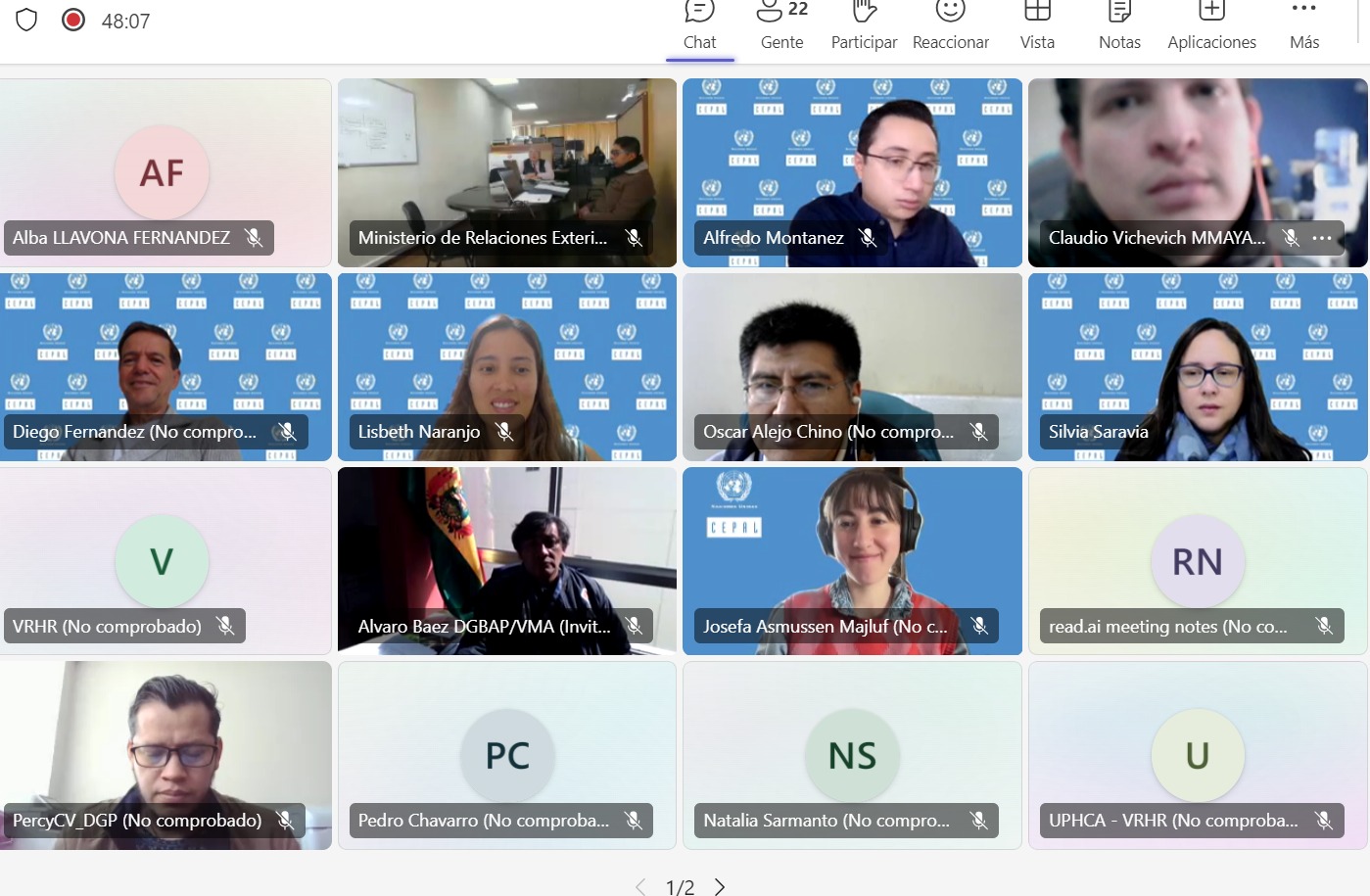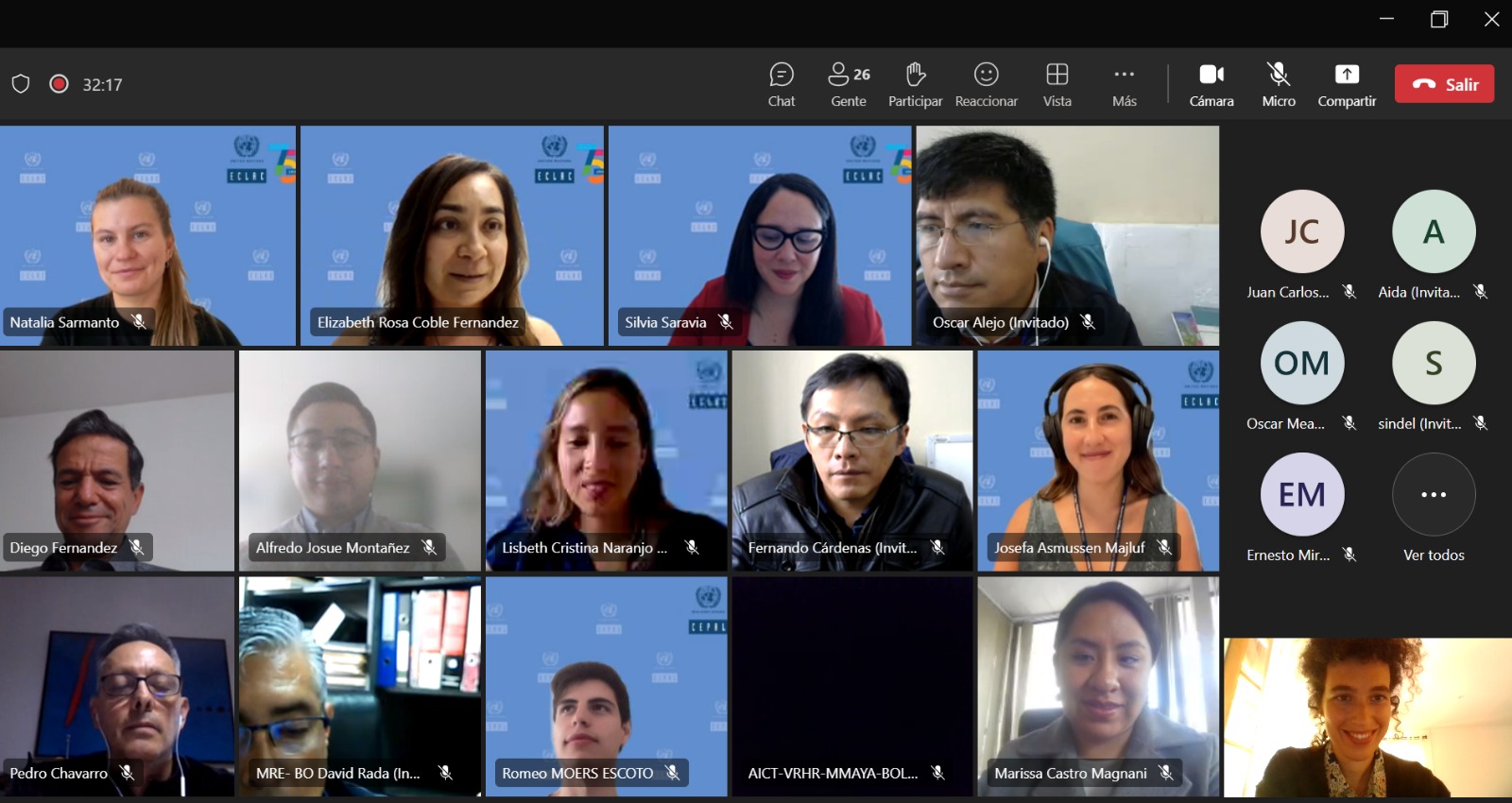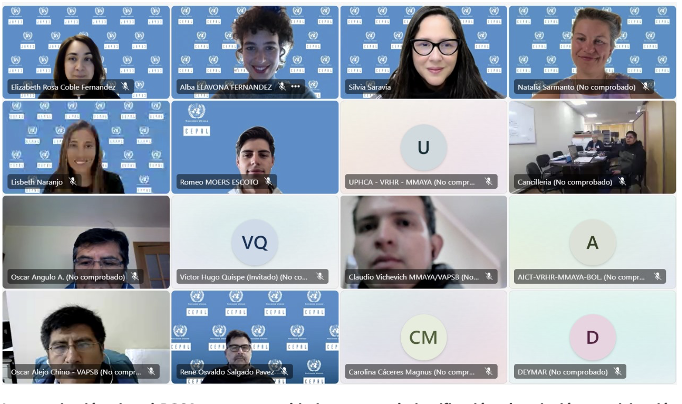Third Virtual Training Session under the ROSA Project for the Plurinational State of Bolivia: “Application of Circular Economy Principles in the Drinking Water and Sanitation Sector”
Topic(s)
On Friday, September 6, 2024, the third online training session on the “Application of Circular Economy Principles in the Drinking Water and Sanitation Sector” was held, directed at the Plurinational State of Bolivia as part of the Water Sustainability Network and Observatory (ROSA) Project. The three-hour session focused on the opportunities that the circular economy offers for methane recovery in wastewater treatment plants, highlighting estimation methodologies, financial evaluation, and financing options.

On Friday, September 6, 2024, the third online training session was held exclusively for the Plurinational State of Bolivia, within the framework of the ROSA Project. The training, titled “Application of Circular Economy Principles in the Drinking Water and Sanitation Sector,” aimed to explore how the circular economy can be harnessed to capture and utilize methane in wastewater treatment plants (WWTPs).
The session began with a welcome and introduction by Silvia Saravia Matus, Economic Affairs Officer at ECLAC. Diego Fernández Giraldo, Senior Expert at ECLAC, then presented the project “Circular Economy Opportunities in Wastewater Treatment in Latin America and the Caribbean.”
In the second session, Pedro Chavarro, also an ECLAC expert, presented a detailed methodology and calculations for estimating methane in selected WWTPs in Mexico and El Salvador. Subsequently, Alfredo Montañez, another ECLAC expert, addressed the financial evaluation of these methane recovery projects.
The training concluded with an interactive roundtable led by Chavarro and Montañez, where participants had the opportunity to ask questions and discuss financing options for national methane reduction programs. The event ended with closing remarks by Silvia Saravia Matus, emphasizing the importance of implementing these initiatives to move towards a more sustainable model in the water and sanitation sector in Bolivia.
This event was a key opportunity to deepen knowledge and application of the circular economy in water resource management, focusing on how to turn waste into valuable resources like methane. This contributes not only to environmental sustainability but also to the generation of economic value for wastewater treatment plants in Bolivia and the region.
Related content

First Online Technical Assistance under the ROSA Project – Plurinational State of Bolivia
As part of the Water Sustainability Network and Observatory (ROSA) project, the first online technical assistance for the Plurinational State of Bolivia was held on February 15, 2024. This inaugural…

ECLAC organizes the second virtual training session as part of the ROSA project's technical assistance to the Plurinational State of Bolivia: "International Processes Around Water Resources."
The virtual ROSA training aimed to review the justification, description, participation, and outcomes of the various international processes related to water management, including aspects relevant to…